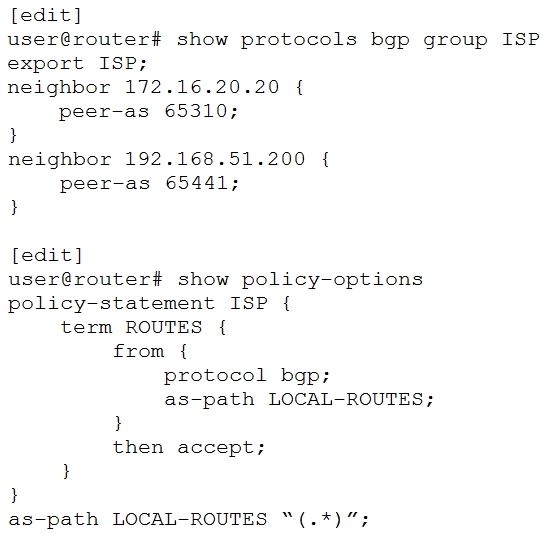
Expert Verified, Online, Free.


Your network is connected to two different ISPs and you notice that they are using your network for transit traffic.
In this scenario, which two configuration statements will solve this problem? (Choose two.)
somanyquestions
Highly Voted 3 years, 1 month agoztw3587t
Most Recent 1 year, 5 months agoztw3587t
1 year, 5 months agomohdema
1 year, 12 months agomohdema
1 year, 12 months agoDIbyam
2 years agobartahr
2 years, 1 month agoguesswho123
1 year, 11 months ago